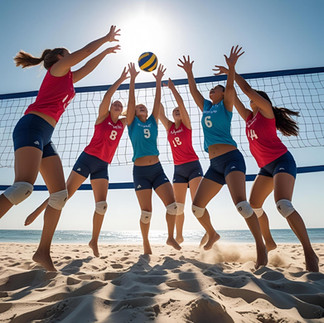After Professional Sport: A Journey of Identity and Renewal
- nadia544
- Jul 20, 2025
- 5 min read
Updated: Jul 21, 2025
Leaving professional sport can feel like stepping into the unknown. For many athletes, their sport has defined them for decades. The structure, camaraderie, purpose, and public recognition tied to elite athletic performance become central to their identity. When retirement comes, whether planned or sudden, athletes often face a profound question: Who am I now?
This article explores the journey of finding oneself after leaving professional sport; the challenges, the opportunities, and the strategies supported by research and lived experience.
The Loss of Athletic Identity
One of the most significant challenges faced by retiring athletes is the loss of athletic identity. Athletic identity refers to the degree to which an individual identifies with the athlete role. According to Brewer et al. (1993), individuals with a strong athletic identity may struggle to adjust to life after sport, especially if their retirement is unplanned due to injury or deselection.
When an athlete retires, the routines, goals, and validation that came with sport can vanish almost overnight. A study by Giannone et al. (2017) found that many retired athletes experience symptoms of anxiety, depression, and a loss of purpose, particularly if their identity was heavily invested in their sport.
The Psychological Impact of Transition
The transition out of sport is often likened to grief. Athletes may mourn not just the loss of their career, but also their sense of self, physical capacity, and community. Research published in the International Review of Sport and Exercise Psychology (Park et al., 2013) describes retirement from sport as a “critical life transition” that can result in emotional distress comparable to divorce or job loss.
Moreover, athletes may feel a societal pressure to "move on" quickly or seamlessly pivot into new careers. This expectation can add further psychological strain, particularly when athletes are still processing their exit from the only life they’ve known.
For those who have been in high-performance environments since adolescence, the lack of prior exposure to alternative career paths or education options can make the transition even more disorienting.
Rebuilding Identity: A Holistic Approach
Rebuilding identity post-retirement takes time, intention, and support. Research emphasises the value of a holistic transition approach, one that supports psychological, emotional, social, and vocational needs.
1. Reflecting on Values Beyond Sport
One of the most empowering steps in self-discovery is reflecting on personal values and passions outside of athletics. Research by Wylleman and Lavallee (2004) recommends guided self-reflection as a tool for identity reformation. This might involve journaling, career coaching, or counselling sessions where athletes explore questions like:
What brings me joy outside of performance?
What kind of impact do I want to have on the world?
What matters most to me in life now?
These questions are not about abandoning one's athletic past but integrating it into a broader, more flexible identity.
2. Connecting with Peers and Mentors
Social support is another critical buffer in the transition process. Talking with former athletes who have successfully navigated retirement can offer perspective and reassurance.
Athlete wellbeing programs, like the Australian Institute of Sport’s Athlete Wellbeing and Engagement initiative, provide networks and counselling services specifically designed for this purpose. These programs emphasise that athletes are not alone in their transition and that seeking help is a strength, not a weakness.
3. Exploring New Careers and Education
Many former athletes find renewed purpose in education, business, creative pursuits, or helping professions. Programs like the Lifeskills initiative by the NCAA in the U.S. or Game Plan in Canada offer tailored career development resources for elite athletes.
According to Lavallee (2005), proactive career planning before retirement correlates with smoother transitions and higher life satisfaction. But even for those who didn’t prepare, it’s never too late to explore education or mentorship programs that align with new interests.
Former AFL player Tom Boyd has spoken openly about his post-sport career in mental health advocacy, describing it as a "second purpose" born out of personal struggle and self-discovery. Echoing the journey of many other Australian athletes who have found renewed purpose in life out of sport.
4. Prioritising Mental Health and Emotional Recovery
Athletes need to allow themselves time to emotionally adjust to life after sport. Mental health support, whether through therapy, peer groups, or online resources, plays a key role in rebuilding confidence and resilience.
Research by Voorheis et al. (2023) indicates that athletes should be supported in building a well-rounded identity, one that extends beyond sport and recognises their unique strengths and abilities as valuable ways to engage with the world. Engaging mental health practitioners with athlete-specific knowledge can help ease the transition and provide targeted support that acknowledges the psychological, emotional, and social challenges of retirement.
Integrating the Past, Not Erasing It
Finding oneself after sport does not mean forgetting one’s achievements. Instead, it’s about integrating that part of your story into a more expansive narrative. Former athletes can honour their discipline, resilience, and teamwork, highly transferable qualities, as they move forward.
Career development experts emphasise the concept of identity continuity, using your past experiences to inform your future direction. Former athletes who construct meaningful post-sport stories that connect with their athletic journey report greater psychological well-being.
A New Chapter
Transitioning out of professional sport is undeniably complex, but it also offers a rare opportunity to write a new chapter based on choice, not performance metrics.
For many athletes, the journey back to self is one of reconnection: with passions that were once sidelined, with relationships that can now deepen, and with an internal compass that no longer depends on outside accolades.
Leaving sport doesn’t mean losing yourself; it can open the door to discovering a deeper, more fulfilling identity than you ever imagined.
Finding Support
Discovery Family Therapy specialises in supporting athletes experiencing transitions by fostering meaning and purpose through therapeutic counselling.
Click the link below to book an appointemnt with one of our counsellors who speciaises in Sports Mental-Heath.
References
Brewer, B. W., Van Raalte, J. L., & Linder, D. E. (1993). Athletic identity: Hercules’ muscles or Achilles heel? International Journal of Sport Psychology, 24(2), 237–254.
Douglas, K., & Carless, D. (2009). Abandoning the performance narrative: Two women's stories of transition from professional sport. Journal of Applied Sport Psychology, 21(2), 213–230. https://doi.org/10.1080/10413200902795109
Giannone, Z. A., Haney, C. J., Kealy, D., & Ogrodniczuk, J. S. (2021). Athletic identity and psychiatric symptoms following retirement from varsity sports. International Journal of Social Psychiatry, 63(7), 598-601. https://doi.org/10.1177/0020764017724184
Lavallee, D. (2005). The effect of a life development intervention on sports career transition adjustment. The Sport Psychologist, 19(2), 193–202. https://doi.org/10.1123/tsp.19.2.193
Park, S., Lavallee, D., & Tod, D. (2013). Athletes’ career transition out of sport: A systematic review. International Review of Sport and Exercise Psychology, 6(1), 22–53. https://doi.org/10.1080/1750984X.2012.687053
Voorheis, P., Silver, M., & Consonni, J. (2023). Adaptation to life after sport for retired athletes: A scoping review of existing reviews and programs. PloS one, 18(9), e0291683–e0291683. https://doi.org/10.1371/journal.pone.0291683
Wylleman, P., & Lavallee, D. (2004). A Developmental Perspective on Transitions Faced by Athletes. In M. R. Weiss (Ed.), Developmental sport and exercise psychology: A lifespan perspective (pp. 503–523). Fitness Information Technology.













After professional sports, it’s easy to feel lost. The transition can be brutal, and finding your identity again isn’t something that happens overnight. But it’s exciting to see more support for athletes making that shift. It’s like gaming platforms too—they offer a space to reset, whether it’s starting over with a new game or getting into something new. You know, online Ricky Casino offers a similar fresh start where players can jump in and start earning, without the pressure. Do you think the support athletes need to re-find themselves is improving, or is there still a long way to go?